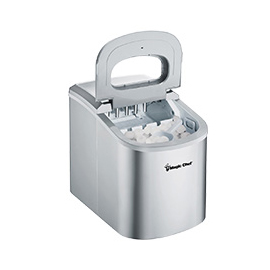Understanding Hydroxyethyl Methylcellulose (HEMC)
Hydroxyethyl Methylcellulose (HEMC) is a non-ionic cellulose ether derived from natural cellulose. It has gained significant attention in various industries, notably in construction, pharmaceuticals, and personal care, due to its unique properties and versatility. In this article, we will explore the characteristics, applications, and benefits of HEMC, emphasizing its importance in modern formulations.
Characteristics of HEMC
HEMC is synthesized through a chemical process that involves the etherification of cellulose with methyl and hydroxyethyl groups. This modification enhances the solubility and stability of cellulose in water, making it an effective thickening agent, binder, and film-former. The molecular structure of HEMC allows it to exhibit exceptional water retention properties, which are crucial in many applications.
One of the defining features of HEMC is its ability to form stable gels when mixed with water. This property is particularly useful in the construction industry, where HEMC acts as a water-retaining agent in mortar and tile adhesives. Additionally, HEMC is characterized by its viscosity, which can be manipulated through the degree of substitution and molecular weight, making it adaptable for various formulations.
Applications of HEMC
HEMC is widely utilized in multiple sectors, showcasing its multifunctional capabilities
. Below are some of its key applications1. Construction Industry In construction materials like cement, mortar, and paints, HEMC serves as a thickener and water-retaining agent. Its incorporation helps to enhance the workability and adhesion of these materials, making them easier to apply and ensuring a longer-lasting bond.
2. Pharmaceuticals In the pharmaceutical domain, HEMC is commonly used as a binder and a film-forming agent in tablets. Its excellent viscosity properties help to improve the texture and consistency of various drug formulations, ensuring proper dosage and efficacy.
3. Personal Care Products HEMC's ability to provide smooth textures and enhance the viscosity of formulations makes it a popular ingredient in lotions, creams, and gels. Its non-ionic nature ensures compatibility with other ingredients, leading to more stable and pleasing products.
cellulose ether hemc

4. Food Industry HEMC finds applications as a thickening agent and stabilizer in food products. It helps to improve texture, retain moisture, and enhance mouthfeel, particularly in sauces, dressings, and dairy products.
5. Coatings and Adhesives In the realm of coatings, HEMC is used for its excellent film-forming ability and water resistance. It provides a uniform coating and enhances the durability of paints and adhesives.
Benefits of HEMC
The popularity of HEMC across various industries can be attributed to its numerous advantages, including
- Safety and Natural Origin Derived from plant cellulose, HEMC is non-toxic and generally recognized as safe (GRAS) for use in food and pharmaceutical applications.
- Versatility With adjustable viscosity and solubility properties, HEMC can be customized to meet the specific needs of different formulations, making it a highly versatile ingredient.
- Performance Enhancement HEMC enhances the performance of products, improving workability, stability, and user experience. In construction, for instance, it improves the adhesion and durability of materials.
- Eco-Friendliness As a cellulose-based compound, HEMC is biodegradable and environmentally friendly, aligning with the growing demand for sustainable materials in various industries.
Conclusion
Hydroxyethyl Methylcellulose (HEMC) is a remarkable cellulose ether with a wide range of applications across different sectors. Its unique properties, including excellent water retention, viscosity control, and compatibility with other ingredients, make it a valuable component in formulation. As industries continue to evolve, the demand for high-performance, eco-friendly materials like HEMC is on the rise. Its ability to enhance product formulations while ensuring safety and sustainability positions HEMC as a key player in the future of various applications, from construction to personal care and beyond.
-
The Application and Significance of Construction RdpNewsMay.19,2025
-
Industrial Grade HpmcNewsMay.19,2025
-
Building Coating Adhesive Building Coating Adhesive HpmcNewsMay.19,2025
-
Application Of Hpmc For Detergent For Detergent In DetergentsNewsMay.19,2025
-
Application Of Hpmc Cellulose In Cement-Based MaterialsNewsMay.19,2025
-
Application Of High Quality Hpmc For Construction In The Field Of ConstructionNewsMay.19,2025




